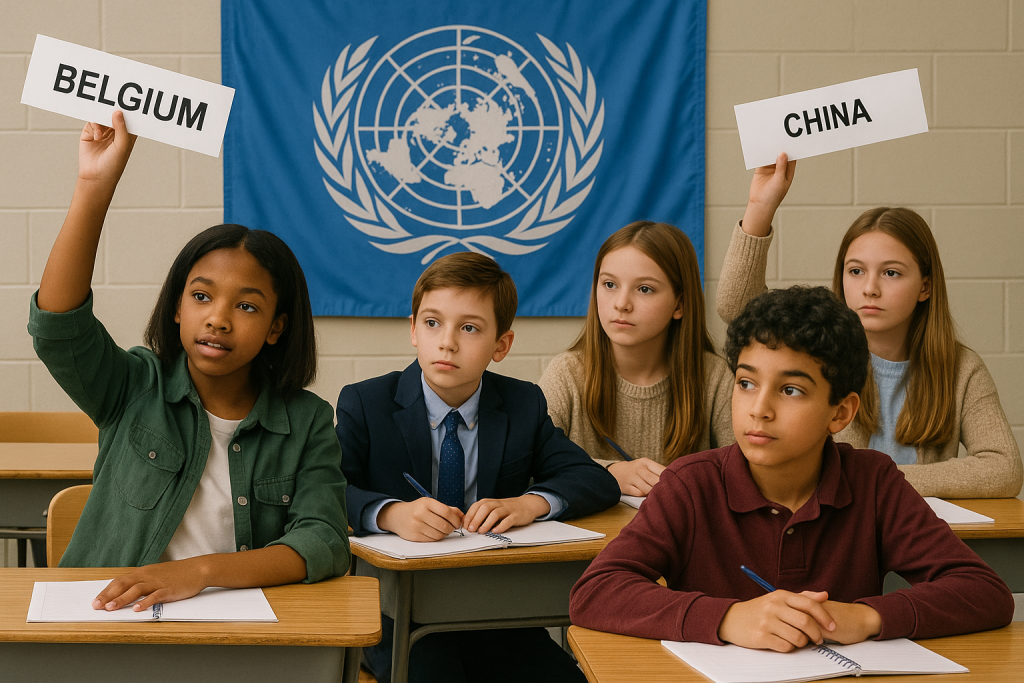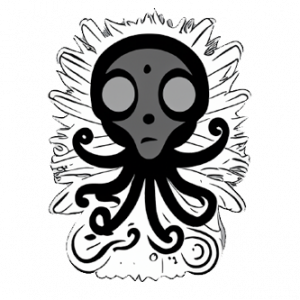Closing the Gender Gap in STEM Careers, Improving Living Conditions in Informal Settlements and Urban Slums, The Situation in the DRC, and The State of Kosovar Independence.

Below, you will find my speach:
- Good morning, everyone!
- Before we begin, I want to extend a thank-you to Victoria Livingston, Associate Director of Youth Education Programs. Thank you as well to Northeastern University for hosting the event.
- I also want to welcome everyone that join us today; Dr. Julie Garey from Northeastern University; all the amazing teachers, advisors, organizers, and sponsors who made today possible; and of course, all of you, our middle school delegates. Without your enthusiasm and commitment, Model UN simply wouldn’t exist.
- I’m truly delighted to see you here this morning.
- I am also quite excited! — and you should be excited, because today you are stepping into the shoes of global leaders and diplomats.
- That’s a pretty big deal!
- This Model UN conference gives you the chance to do something extraordinary: to learn, debate, negotiate, and collaborate on some of the most important issues shaping our world. It’s not just a chance to speak — it’s a chance to listen!
- A chance to learn from others. A chance to see different perspectives. And a chance to connect with people who care about the future of our planet.
- We’re living in a time when the world truly needs the very best of us.
Let me ask you something — feel free to raise your hand:- How many of you care about improving living conditions for all people?
- What about supporting families who are forced to migrate?
- Protecting children caught in conflict?
- Closing the gender gap in science and technology?
- These aren’t imaginary problems — they are real issues that real diplomats, scientists, and leaders are dealing with at this very moment.
- For example, have you ever heard about ‘planetary boundaries’?
- What it means is that our Earth has natural limits — like warning lines — for things such as pollution, climate change, deforestation, and loss of biodiversity.
- And, when we cross those lines, we start to damage the systems that keep our planet healthy and able to support life.
- One person I truly admired who explains this beautifully is the ocean explorer Dr. Sylvia Earle. She likes to say, “No blue, no green, no life.” What she means is that the ocean, the land, the climate, the forests — everything is connected.
- And the choices we make everyday matter. The food we waste, what we buy, how we treat nature, how we treat people, all have an impact.
- Your participation shows that you care about the big challenges we face, protecting the environment, advancing science, improving health and living conditions, supporting human rights, and creating opportunities for all people — not just today, but for generations to come.
- You’re learning how to have difficult conversations respectfully, how to be empathetic, and how to understand people whose experiences are very different from your own.
- That’s why Model UN is so important.
- It lets young people like you, think and act like global leaders!
- You will debate the same issues real countries are trying to solve right now.
- Maybe some or all of you have heard about the Conference of the Parties or the COP30 happening right now in Belém, Brazil?
- It’s the big United Nations climate conference where countries come together to decide how to protect our planet.
- For instance, this week:
- Countries and the World Health Organization agreed on the Belém Health Action Plan, which focuses on helping our health systems prepare for the effects of climate change
- Also, nineteen countries signed the Belém 4× Pledge, promising to use four times more sustainable fuels by 2035.
- These and other initiatives show something important: Global challenges require global cooperation.
- Negotiation matters. Diplomacy matters. Your voice matters.
- And that brings me back to all of you:
- As you move through your Model UN experience today, keep these three ideas in mind:
- Be an effective communicator. Speak clearly, confidently, and respectfully.
- Listen deeply. Sometimes the most important thing in diplomacy is hearing what others are saying.
- Try to understand the other side. Put yourself in their shoes. Ask why they hold the position they do. Understanding doesn’t mean agreeing — but it does make collaboration possible.
- Sometimes, when we care deeply about an issue, it feels obvious that everyone should agree with us. Right?
- Has anyone ever felt that way?
- However, even when something seems clear to us, we still need to build our case.
- We need to explain our reasoning, use facts, and present evidence.
- We need to listen to others, even when — especially when — we disagree.
- When you do these things, you’re not just practicing debate — you’re helping build a world where dialogue, empathy, and teamwork make us stronger.
- As a mother of a middle school young men, I’m so pleased — and honestly, so encouraged — to see many young people coming together to debate the issues that adults around the world are also trying to solve.
- You have prepared your research, learned your country positions, and gotten ready to speak – to question – and to collaborate.
- That effort, shows your dedication and shows that you’re investing in our shared future.
- You’re learning the skills the world urgently needs. And you’re showing that young people are ready to lead.
- So, thank you — truly — for being here, for caring, and for stepping up.
- I hope you have a meaningful, inspiring, and productive day. And I hope you leave this conference not just with new knowledge, but with new friendships, new confidence, and a new sense of what you can achieve.
- Thank you — and have an amazing Model UN experience!

